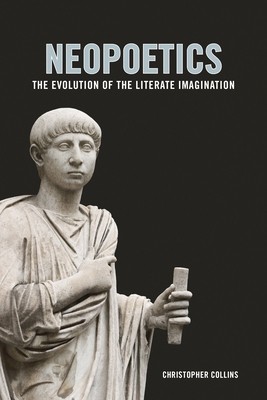
- We will send in 10–14 business days.
- Author: Christopher Collins
- Publisher: Columbia University Press
- ISBN-10: 0231176864
- ISBN-13: 9780231176866
- Format: 15.5 x 23.1 x 2.8 cm, kieti viršeliai
- Language: English
- SAVE -10% with code: EXTRA
Reviews
Description
The quest to understand the evolution of the literary mind has become a fertile field of inquiry and speculation for scholars across literary studies and cognitive science. In Paleopoetics, Christopher Collins's acclaimed earlier title, he described how language emerged both as a communicative tool and as a means of fashioning other communicative tools--stories, songs, and rituals. In Neopoetics, Collins turns his attention to the cognitive evolution of the writing-ready brain. Further integrating neuroscience into the popular field of cognitive poetics, he adds empirical depth to our study of literary texts and verbal imagination and offers a whole new way to look at reading, writing, and creative expression. Collins begins Neopoetics with the early use of visual signs, first as reminders of narrative episodes and then as conventional symbols representing actual speech sounds. Next he examines the implications of written texts for the play of the auditory and visual imagination. To exemplify this long transition from oral to literate artistry, Collins examines a wide array of classical texts--from Homer and Hesiod to Plato and Aristotle and from the lyric innovations of Augustan Rome to the inner dialogues of St. Augustine. In this work of "big history," Collins demonstrates how biological and cultural evolution collaborated to shape both literature and the brain we use to read it.
EXTRA 10 % discount with code: EXTRA
The promotion ends in 22d.16:25:58
The discount code is valid when purchasing from 10 €. Discounts do not stack.
- Author: Christopher Collins
- Publisher: Columbia University Press
- ISBN-10: 0231176864
- ISBN-13: 9780231176866
- Format: 15.5 x 23.1 x 2.8 cm, kieti viršeliai
- Language: English English
The quest to understand the evolution of the literary mind has become a fertile field of inquiry and speculation for scholars across literary studies and cognitive science. In Paleopoetics, Christopher Collins's acclaimed earlier title, he described how language emerged both as a communicative tool and as a means of fashioning other communicative tools--stories, songs, and rituals. In Neopoetics, Collins turns his attention to the cognitive evolution of the writing-ready brain. Further integrating neuroscience into the popular field of cognitive poetics, he adds empirical depth to our study of literary texts and verbal imagination and offers a whole new way to look at reading, writing, and creative expression. Collins begins Neopoetics with the early use of visual signs, first as reminders of narrative episodes and then as conventional symbols representing actual speech sounds. Next he examines the implications of written texts for the play of the auditory and visual imagination. To exemplify this long transition from oral to literate artistry, Collins examines a wide array of classical texts--from Homer and Hesiod to Plato and Aristotle and from the lyric innovations of Augustan Rome to the inner dialogues of St. Augustine. In this work of "big history," Collins demonstrates how biological and cultural evolution collaborated to shape both literature and the brain we use to read it.


Reviews